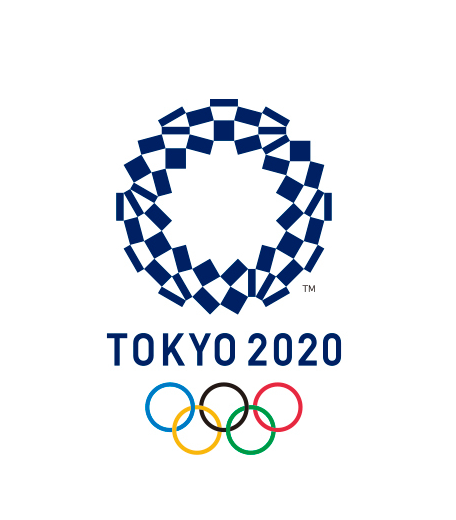
To safeguard the health of all involved and to contribute to the containment of COVID-19, the Executive Board (EB) of the International Olympic Committee (IOC) announced on Sunday, March 22 that the IOC will step up its scenario-planning for the Olympic Games Tokyo 2020.
These scenarios relate to modifying existing operational plans for the Games to go ahead on 24 July 2020, and also for changes to the start date of the Games. This step will allow better visibility of the rapidly changing development of the health situation around the world and in Japan. It will serve as the basis for the best decision in the interest of the athletes and everyone else involved.
Tahesia Harrigan-Scott, Chef de Mission Tokyo 2020 in consultation with Ephraim Penn, President of the BVIOC has remained in constant touch on the matter with Eldred Henry, Kyron McMaster and Chantel Malone, the 3 Virgin Islands’ athletes confirmed to attend the 2020 Summer Olympic Games in Japan.
“These indeed are uncertain times and while the outcome of the discussions between the IOC, Tokyo 2020 organisers and stake holders is an unknown and while meets and important competitions in the lead up to the Games have been impacted, our athletes are continuing with their training as best they can to be as ready as they can be. It’s not an ideal situation but at this time, we can only continue with the preparations and encourage our athletes to take the necessary precautions to safeguard their health while preparing as if the Games will go ahead until we are advised otherwise,” said Mrs. Harrigan-Scott.
“All NOCs and international federations are being notified of decisions as they are made and we in turn are working with our Chef de Mission to keep our stake holders informed. The local federations are also kept abreast of developments through their international governing bodies. We have spoken with the BVI Athletics Association and have noted that the biggest concern for our athletes for now is the potential medical risks but we are in agreement that we will await the outcome of the IOC’s decision and will address any of the athletes’ questions and concerns at that time,” said Mr. Penn.
On the one hand, there are significant improvements in Japan where the people are warmly welcoming the Olympic flame. This could strengthen the IOC’s confidence in the Japanese hosts that the IOC could, with certain safety restrictions, organise Olympic Games in the country whilst respecting its principle of safeguarding the health of everyone involved.
On the other hand, there is a dramatic increase in cases and new outbreaks of COVID-19 in different countries on different continents. This led the EB to the conclusion that the IOC needs to take the next step in its scenario-planning.
A number of critical venues needed for the Games could potentially not be available anymore. The situations with millions of nights already booked in hotels is extremely difficult to handle, and the international sports calendar for at least 33 Olympic sports would have to be adapted. These are just a few of many, many more challenges.
Therefore, further to the study of different scenarios, it would need the full commitment and cooperation of the Tokyo 2020 Organising Committee and the Japanese authorities, and of all the International Federations (IFs) and National Olympic Committees (NOCs). It would also require commitment from, and collaboration with, the Rights-Holding Broadcasters (RHBs) and our TOP Partner sponsors, as part of their continued and valued support to the Olympic Movement, as well as cooperation from all the Games’ partners, suppliers and contractors. It is in this spirit of the Olympic stakeholders’ shared commitment to the Olympic Games, and in light of the worldwide deteriorating situation, that the IOC EB has initiated the next step in the IOC’s scenario-planning.
The IOC will, in full coordination and partnership with the Tokyo 2020 Organising Committee, the Japanese authorities and the Tokyo Metropolitan Government, start detailed discussions to complete its assessment of the rapid development of the worldwide health situation and its impact on the Olympic Games, including the scenario of postponement. The IOC is confident that it will have finalised these discussions within the next four weeks, and greatly appreciates the solidarity and partnership of the NOCs and IFs in supporting the athletes and adapting Games planning.
The IOC EB emphasised that a cancellation of the Olympic Games Tokyo 2020 would not solve any of the problems or help anybody. Therefore, cancellation is not on the agenda.
After the EB meeting on Sunday, IOC President Thomas Bach wrote to the global athlete community to provide them with an explanation of the IOC’s approach. In the letter, Bach stated once more that safeguarding the health of everyone involved and contributing to contain the virus is the fundamental principle, and said: “Human lives take precedence over everything, including the staging of the Games. The IOC wants to be part of the solution. Therefore we have made it our leading principle to safeguard the health of everyone involved, and to contribute to containing the virus. I wish, and we all are working for this, that the hope so many athletes, NOCs and IFs from all five continents have expressed will be fulfilled: that at the end of this dark tunnel we are all going through together, not knowing how long it is, the Olympic flame will be a light at the end of this tunnel.”